The big election issues: immigration, racism and discrimination
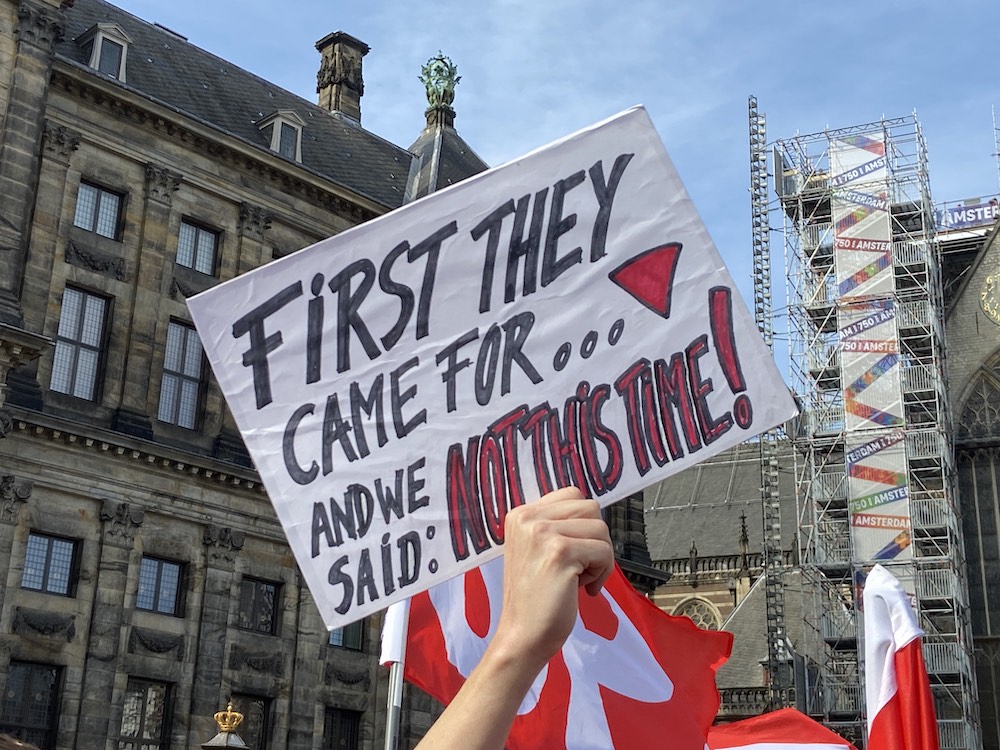
The Netherlands goes to the polls on October 29 to elect a new government. We asked you what issues you wanted us to cover, and immigration, racism and discrimination were among the main subjects.
Immigration was the issue that dominated the last election campaign and propelled Geert Wilders’ far-right PVV party to its best ever result of 37 seats, giving it the chance to form a coalition.
The right-wing liberal VVD set the tone for the campaign when Dilan Yesilgöz removed the cordon sanitaire around Wilders’ party, opening the door to a cabinet that lasted less than a year.
This time around she has shut out the PVV as a coalition partner, but the VVD also plans radical reforms to the asylum system to bring migration numbers down significantly. So too does the hard-right JA21 party, led by Joost Eerdmans, whose manifesto calls for Danish-style border controls and ankle tags to keep tabs on failed refugees so they do not avoid deportation.
The left-wing parties also say migration should be more tightly controlled but favour removing barriers to work for refugees who have the right to stay – as does the VVD, but with stricter sanctions attached. GL-PvdA and D66 call for measures to protect labour migrants from exploitation and tighter regulation for sectors where they are exploited.
With the exception of the PVV, all the parties have ideas to combat discrimination, but use very different definitions. GL-PvdA, D66 and CDA all say Islamophobia and anti-Semitism both need to be tackled, while the VVD say Islamic schools promote “segregation” and should be discouraged. JA21, meanwhile, calls Islamic culture harmful and pledges to “debunk the myth that the Netherlands is a racist country”.
PVV: “Resistance to Islamisation”
Unsurprisingly, cracking down on asylum is the top priority again for Wilders. He describes his party’s manifesto as a programme of “democratic resistance” against “mass immigration and Islamisation”. Wilders pledges to send troops to the border to turn away refugees, close accommodation facilities for asylum seekers and repeal the law that enables the government to force local councils to house refugees.
The PVV would use its veto in Brussels to force other countries to give the Netherlands a Danish-style opt-out on European refugee quotas, though the manifesto does not say how this would work.
Wilders also calls for a total ban on immigration from Islamic countries and a “voluntary remigration” scheme. Dual nationality would be banned and the term for naturalisation extended to 15 years. Wilders also says all adult Ukrainian men should return to their country to fight, even though the age of conscription in Ukraine is 25.
The PVV’s manifesto contains several blatantly discriminatory proposals, such as banning the use of Arabic and other “non-western languages” in shop displays, government communications and at demonstrations. Headscarves would be forbidden in all government buildings, including parliament.
Non-binary passports would be abolished and trans people defined by their biological sex. Wilders also wants to reverse the apologies made by king Willem-Alexander for the Netherlands’ slave trading past and the brutal repression of Indonesia’s independence movement.
CDA: “Firm but fair”
The Christian Democrats take a middle line on asylum, calling for a “firm but fair” approach. Asylum seekers should have their claims processed outside Europe to stop people smuggling.
The CDA is in favour of a two-tier asylum system to distinguish between temporary and permanent refugees. Staying in the country illegally should be a criminal offence but helping illegal refugees should not. The party would impose more demands on settled refugees such as learning the language: those who refused would lose their status.
But restrictions on working would be removed for asylum seekers with a strong chance of meeting the entry criteria. Citizenship programmes would be obligatory and local authorities would be obliged to provide them.
The CDA pledges to take a strong line on discrimination and specifically mentions Islamophobia and anti-Semitism. The government would have a duty to set an example, challenge prejudice and remove barriers to inclusion. People with disabilities should have better access to public transport, buildings and work.
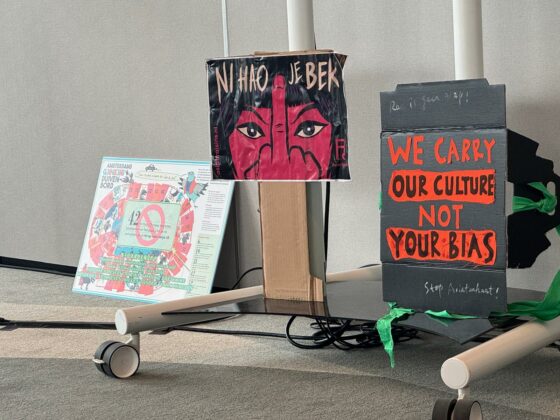
GL-PvdA: Migration quotas
For the first time the left-wing parties have set a target figure for migration in their manifesto. Net migration should be capped at between 40,000 and 60,000 a year, quoting the recommendations of a government commission on population growth. Asylum claims should be dealt with through a “fast and fair” process at the European border, but unlike right-wing parties GL-PvdA say applicants should receive legal aid.
Wages should be raised in sectors that rely on low-paid migrant labour such as logistics, meat processing and the greenhouse industry, to tackle exploitation. Ukrainian refugees should be allowed to stay longer and pay the same university fees as EU students.
The parties want to tackle discrimination with tougher penalties and investment in information and enforcement, including more resources for the police and prosecution service. Discriminatory algorithms and risk profiling, such as the lists of dual nationals used by the tax office to identify suspected fraudsters, would be outlawed. Extra security should be provided for mosques and synagogues.
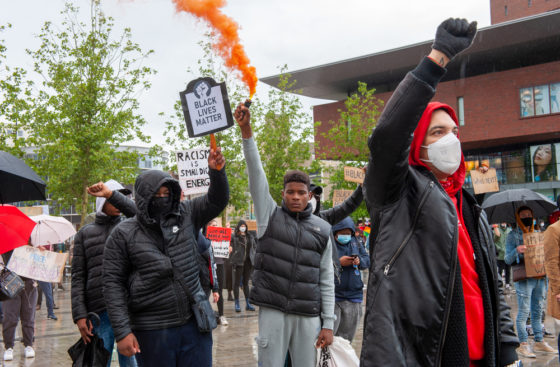
D66: Faster integration
The progressive liberal party also says asylum claims should be processed outside the EU as part of the implementation of the European Migration Pact in 2026. Asylum seekers should be encouraged to participate in society sooner by allowing them to work and access education and training from day one.
Children who have been in the Netherlands for five years will be granted the right to stay. Learning Dutch will be compulsory, but the manifesto does not say what will happen if asylum seekers fail their language tests.
D66 wants to speed up the asylum procedure and the removal of those with no right to stay. It would end the “accommodation crisis” by creating smaller accommodation facilities that are integrated into local neighbourhoods. There will be tougher regimes and penal accommodation for the “small group” of asylum seekers who disrupt neighbourhoods.
The party would strengthen anti-discrimination laws to outlaw all forms of hatred, including racism, sexism, anti-Semitism, islamophobia and homophobia, as well as discrimination on grounds of poverty, neurodiversity, age and disability. A hotline will be set up to report discrimination in the healthcare system and health professionals will be given more training on the diversity of their patients.
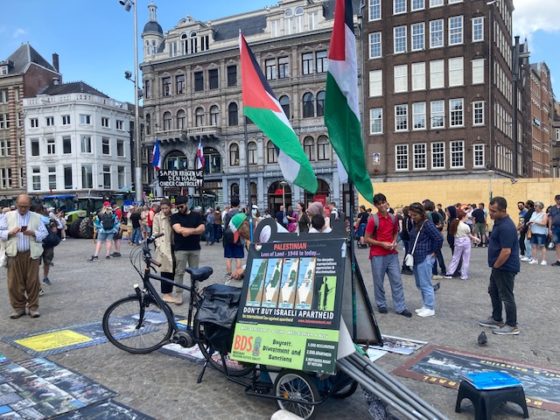
VVD: Asylum by invitation
The right-wing liberal party calls for a “fundamental“ reform of the asylum system so that the Netherlands, as host country, decides how many refugees it should take in based on its capacity to house them, rather than the circumstances people are fleeing from. A points system would be used to ensure “only the most vulnerable refugees” are selected.
The VVD argues work is the best way to ensure newcomers integrate quickly and do not fall into crime or fundamentalism. Refugees should be offered work or apprenticeships in sectors with labour shortages, such as healthcare, construction and technology.
Those who refuse more than once will have their benefits cut. Benefits will also be cut for refugees who fail to turn up for language lessons or exams. Pre-school education would be compulsory for children of migrants to ensure they integrate.
The constitutional right to freedom of education should be modernised and local councils given more discretion to reject applications to set up Islamic schools, so that “freedom of education is not used as an excuse for exclusion”. The VVD says it will clamp down on discrimination based on origin, but also say measures need to be taken to stop culture or religion being used as an excuse for oppression.
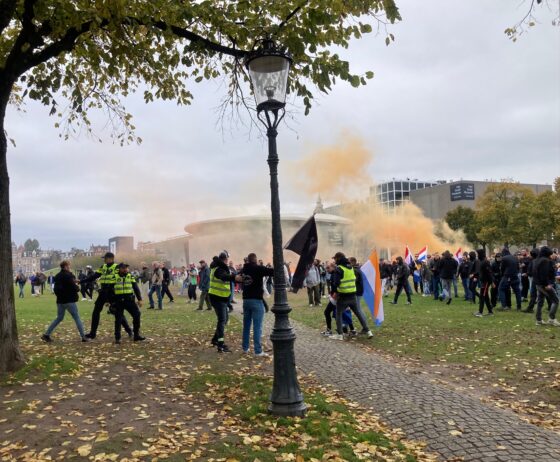
JA21: Renegotiate treaties
Joost Eerdmans’ party calls for a Danish-style immigration system with strict limits on all forms of migration: asylum seekers, labour migrants, international students and family members.
It plans to step up border controls, renegotiate European and international migration treaties, criminalise illegal migration and use ankle tags to stop rejected asylum seekers dropping off the radar. All settled refugees should have their status reassessed and a voluntary repatriation scheme set up to encourage asylum seekers, especially from Syria, to return. Asylum tribunals would be separated from the regular court system with no right of appeal.
Labour migration should be limited and based on demand: ”high-skilled workers that our society needs” would still be welcome but manual workers from outside the EU would not. European migrants who become homeless after losing their jobs should be sent home permanently, although the party also wants to crack down on landlords and agencies that exploit foreign workers.
JA21 says discrimination should not be a barrier to integration, but its manifesto also pledges to “debunk the myth that the Netherlands is a racist country”. It argues that criticism of the Muslim religion is “dismissed as Islamophobia” and states that Islamic culture is harmful to women, gays and Jews.
The party would abolish diversity and inclusion training in workplaces and remove references to institutional racism from government policy.
Earlier in this series:
Still to come: healthcare and the cost of living
Thank you for donating to DutchNews.nl.
We could not provide the Dutch News service, and keep it free of charge, without the generous support of our readers. Your donations allow us to report on issues you tell us matter, and provide you with a summary of the most important Dutch news each day.
Make a donation